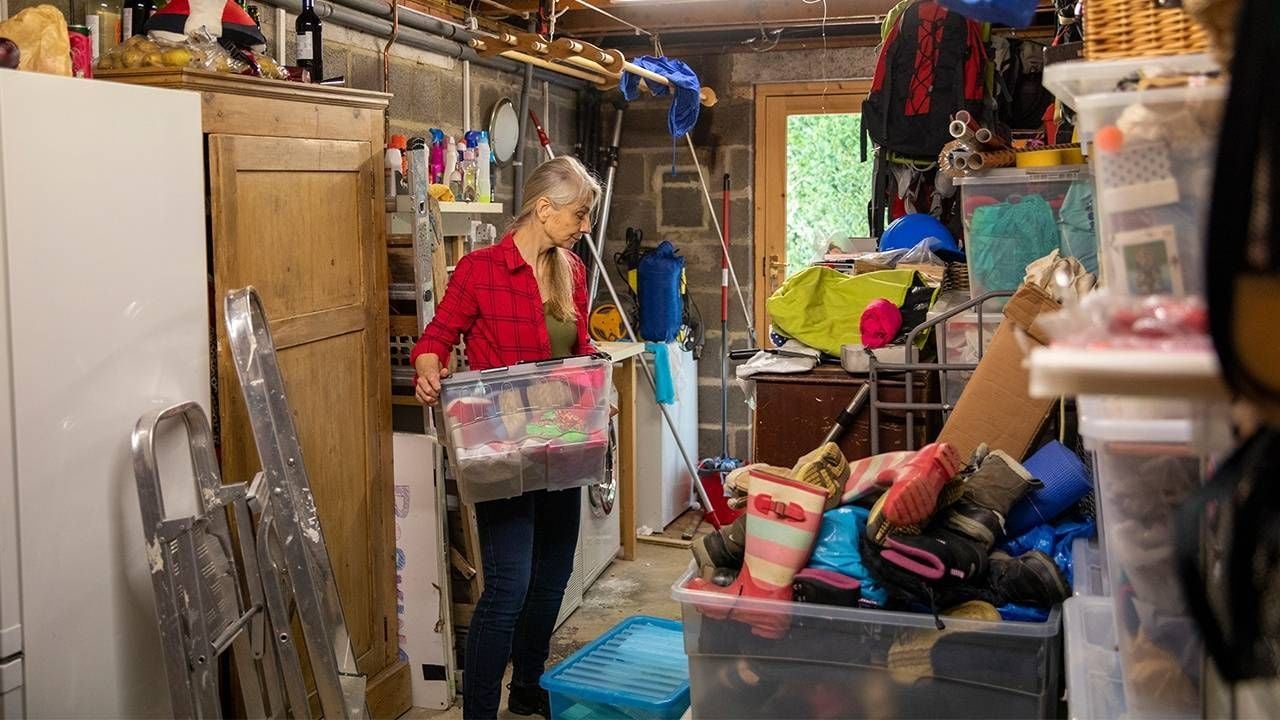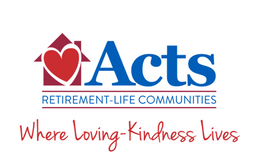Why Clutter is Bad for Your Health
Reasons to downsize and consider an independent living community

We accumulate a lot of stuff from our long, well-lived life. Knick-knacks, memorabilia and gifts from beloved friends and family are a record of everything we've seen and done in our lives, and they serve as wonderful reminders of happy times. But there is a danger with accumulating all this stuff; you can, in fact, end up with too much of a good thing. A cluttered home is not the best environment, especially if you plan on retiring and aging in place.
Thankfully, there's a great alternative to living in your own clutter for years. This alternative is safer and healthier and still lets you take those important keepsakes with you. We're talking about downsizing your living arrangements. More particularly, we're talking about moving to an independent living community. Here's what you need to consider.
The Many Physical Dangers of Clutter
There are dozens of reasons why clutter is bad for your physical health. In fact, it's hard to squeeze all of those reasons into just one short guide like this. Perhaps the most logical place to start is the danger they place to you being able to move around your home safely. Whether it's stacks of newspapers, boxes of books or anything else you've accumulated over the decades of living in your home, having an abundance of clutter can make it physically dangerous to move around. You risk tripping and falling to the floor or, in the most extreme of cases, even being buried under an avalanche of clutter if you disturb a precarious pile.
Even if you have a specific place to keep your clutter, such as a spare room or a garage, this means that you're effectively cutting off an entire space just to deal with the amount of stuff you've grown to possess over the years. Unless you're extremely methodical, such a storage room is likely to be an unorganized mess of bric-a-brac that's stuffed to the brim. Such a space is more than just impossible to navigate — it's even harder to find anything you might be looking for. Not only that, but unless you store things properly, these items can become damaged. A damp basement, for example, is the worst place possible to store anything that's susceptible to mold or mildew.
The Possible Health Effects
On the subject of clutter becoming moldy or mildewed, let's be honest here: you don't need those kinds of things in your house. Mold and mildew can spread like an infection; in turn, they can alter the environment of your home and make it a toxic place for you to live. Black mold, which is most commonly found in buildings that have been exposed to dampness, is extremely toxic; if you happen to be allergic to these types of molds, you're in for an even worse time. Symptoms include a runny nose, a dry cough, red and watery eyes, a sore throat and even skin rashes.
Physical health issues aren't limited to mold exposure, though. Clutter collects lots of dust, and high levels of dust in the air can create symptoms similar to those you would experience with mold exposure. Where mold is limited to damp environments, however, dust collects anywhere and everywhere. If you've got a respiratory condition like asthma, or if you're over 65, these symptoms can be even worse. So, unless you're constantly cleaning your house and its collection of clutter, you're probably living with unhealthy levels of dust in your air.
Downsizing Can Save Your Life
No matter how big your home is now, if it's stuffed with clutter, you're not doing yourself any favors. In fact, you might be actively shortening your life expectancy. Even if you clean out some of that clutter, all that extra space is going to be too tempting to fill it back up. That's why intentionally downsizing to a smaller home can be just what the doctor ordered. An apartment, a semi-detached home or a cottage at an independent living community is often just the right size to accommodate your needs — and that includes a smaller, safer selection of your beloved odds and ends.
There are a number of reasons why downsizing is a healthy alternative. First, these accommodations are often newer construction, which means there hasn't been an opportunity for dust or mold to accumulate, resulting in a much physically healthier space. Additionally, with regular maintenance included in the cost of a home in an independent living community, these units will stay in great condition much more easily than an older home that you've been responsible for maintaining. A new, clean, well-maintained environment means it's free of all the dangers of your old, cluttered home.
The Art of Letting Go
Nobody wants to face the prospect of evaluating a lifetime's worth of stuff and deciding what they're bringing to a new home and what they're leaving behind. The truth is, though, that this process is easier than you might think, as long as you're committed to cutting the clutter in your life. Sometimes this can be easy; you don't need stacks of old newspapers from years past unless they're from an important day in history, for example. Likewise, if you have specific objects that your family members might be emotionally attached to, consider gifting them to children or grandchildren who will value them as much as you do.
Not every choice is going to be that easy. Bulky objects that take up plenty of space, like row after row of books on a shelf, can be hard to leave behind. You'll need to cut down on the ones you bring with you and donate the rest to a library or used bookstore. Excess clothes or shoes, likewise, can be donated to a charity like the local Goodwill. Just remember: every piece of clutter you let go gets you closer to your goal of living a healthy, clutter-free life in a new and comfortable downsized home.
Considering Retiring in the Near Future?
In these uncertain times, Acts Retirement-Life Communities is here to help. There is hope on the horizon and it's time to start planning your future. Don't put your life on hold. There are plenty of ways to stay safe while working towards the next exciting chapter in your life. You can conduct research, plan for your financial future, explore virtual tours and community floor plans and talk to retirement experts all from the comfort and safety of your home. For more information on retirement or how to plan your next chapter, read these articles by Acts Retirement-Life Communities:
- What is the Average Cost of a Senior Independent Living Community?
- How to Prepare for a Recession if You Are Retired
- Should I Sell My Home During a Recession?

Acts Retirement-Life Communities is the largest not-for-profit owner, operator and developer of continuing care retirement communities in the United States. Headquartered in suburban Philadelphia, Acts has a family of 23 retirement communities that serve approximately 8,500 residents and employ 6,200 in Pennsylvania, Delaware, Maryland, North and South Carolina, Georgia, Alabama and Florida. For more information about Acts visit actsretirement.org.

